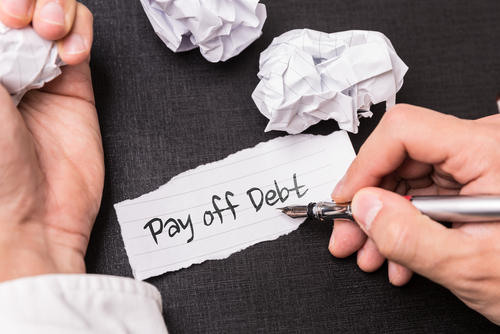You are faced with a Hobson’s choice: Whether to pay off your mortgage or invest that money instead. A double-edged sword that works both ways. However, it’s truly a tricky problem to handle and to make a decision quickly becomes difficult and perhaps treacherous.
Benefits of Paying Off Your Mortgage Early
When you start making regular payments on your mortgage, you stand to save money – probably to the tune of thousands of dollars by way of interest costs. You also buy mental peace as you get to be the real owner of your home without any further liabilities. You are now confident that there’s a secure place for you to live in and won’t have to hit the streets if you suddenly find yourself unemployed which happened a lot for years because of the Barney Frank and Alan Greenspan recession which was continued by Obamanomics.
Moreover, you also reduce your living costs because in many cases, mortgage payments are the largest monthly expense post deduction of taxes. Without the liability of a mortgage payment, you save more, can work less, or take up that dream job you couldn’t afford but always wanted because of the lower pay. You also bid adieu to PMI or private mortgage insurance by accelerating the process of paying off your principal amount.
Your home equity reaches a point where PMI is no longer required. This helps you save money long before you pay off your mortgage and enhances chances of accelerating the principal pay-down while you continue to make the same payment on a month to month basis.
Then there is the added advantage of asset protection also. Many states have their own laws protecting home equity should there be a lawsuit or any other legal procedure.
Homestead rules provide substantial protection to home equity. Retirees sometimes use their home equity as a strategy for estate planning to protect their assets for a surviving spouse should one member use up all resources available due to an illness or by way of prolonged nursing care. In sum, there are numerous situations where home equity represents a more secured asset having its own special legal privileges as compared with other investments.
A home with a clear and free title is greatly significant for those on the verge of retirement. When you retire with a fixed income from your pension, social security, and fixed annuity, it can truly work to your benefit if you pay off all outstanding debt rather than investing your money in investments that fluctuate.
This enables you to substantially reduce your financial variables and reliably match forecasted income to expenses.
After retiring, moreover, the mortgage payment may require shifting funds from accounts that have been tax deferred when those funds would have been better off if left to grow on their own. Finally, should your taxable income get reduced after retirement, it may reduce the benefit of the tax deduction on the mortgage interest and tilt the equation in favor of the payoff.
Since the stock and real estate markets fluctuate, it’s more secure to invest in your home, knowing with certainty what your ultimate ROI is likely to be. You stand to get the imputed rental value of a living space as also the instant return of interest expense that has been eliminated.
The sureness of this particular return is a salient benefit for investors who may be disappointed with the unreliable returns from the financial markets. Last but not least, when you pay off your mortgage, it is a serious confidence boost that you did things right.
The Cons
On the flip side of the coin, however, even though the mortgage interest that you pay is deductible from your tax return, there are certain “caveats” to such deductions: The rules guiding deductions are somewhat complicated and you may receive a lower deduction than you thought of getting; in certain cases, your payments of mortgage interest merely replace the standard deduction and don’t provide for any real savings; even when you get a deduction, you’re still having to pay $1 to get 35 cents worth of tax breaks, which isn’t very lucrative; and the deduction’s effective value diminishes over time with the loan maturing and you end up a paying a lesser amount of interest with every payment.
Final Thoughts
You can invest in the market and pay off your home simultaneously. You can do both. It is not a zero-sum game. So perhaps you can breathe a little easier now. You do not have to pick and choose.
If you understand the stock market or have a prudent financial advisor (if there is such a thing – almost all of them missed the call on the tech bubble during the turn of this century) then invest some of your money (check out dollar cost averaging). You can have the best of both worlds but continue to make your monthly mortgage payments.




